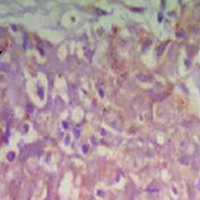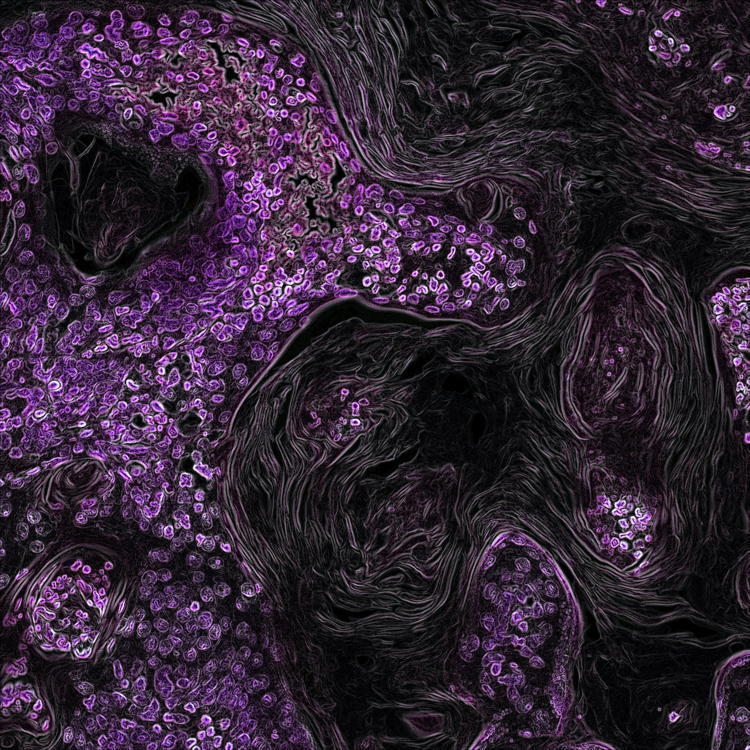Correlation of the AKT/mTOR signaling pathway with the clinicopathological features and prognosis of nasopharyngeal carcinoma

Submitted: 12 July 2021
Accepted: 11 October 2021
Published: 16 November 2021
Accepted: 11 October 2021
Abstract Views: 919
PDF: 414
HTML: 19
HTML: 19
Publisher's note
All claims expressed in this article are solely those of the authors and do not necessarily represent those of their affiliated organizations, or those of the publisher, the editors and the reviewers. Any product that may be evaluated in this article or claim that may be made by its manufacturer is not guaranteed or endorsed by the publisher.
All claims expressed in this article are solely those of the authors and do not necessarily represent those of their affiliated organizations, or those of the publisher, the editors and the reviewers. Any product that may be evaluated in this article or claim that may be made by its manufacturer is not guaranteed or endorsed by the publisher.
Similar Articles
- Zhongzhu Tang, Lei Wang, Yunwang Chen, Xiaomin Zheng, Runyu Wang, Bingxue Liu, Shiqi Zhang, Huimin Wang, Quercetin reverses 5-fluorouracil resistance in colon cancer cells by modulating the NRF2/HO-1 pathway , European Journal of Histochemistry: Vol. 67 No. 3 (2023)
- Suwei Dong, Yanbin Xiao, Ziqiang Zhu, Xiang Ma, Zhuohui Peng, Jianping Kang, Jianqiang Wang, Yunqing Wang, Zhen Li, Metformin sensitises osteosarcoma to chemotherapy via the IGF-1R/miR-610/FEN1 pathway , European Journal of Histochemistry: Vol. 67 No. 2 (2023)
- Jindong Li, Jie Kang, Weiyan Liu, Jiazhe Liu, Gaofeng Pan, Anwei Mao, Qing Zhang, Jingfeng Lu, Junbin Ding, Hongchang Li, Docetaxel-resistant triple-negative breast cancer cell-derived exosomal lncRNA LINC00667 reduces the chemosensitivity of breast cancer cells to docetaxel via targeting miR-200b-3p/Bcl-2 axis , European Journal of Histochemistry: Vol. 66 No. 4 (2022)
- R. M. Ruggeri, E. Vitarelli, G. Barresi, F. Trimarchi, S. Benvenga, M. Trovato, The tyrosine kinase receptor c-met, its cognate ligand HGF and the tyrosine kinase receptor trasducers STAT3, PI3K and RHO in thyroid nodules associated with Hashimoto's thyroiditis: an immunohistochemical characterization , European Journal of Histochemistry: Vol. 54 No. 2 (2010)
- M. Scimeca, A. Orlandi, I. Terrenato, S. Bischetti, E. Bonanno, Assessment of metal contaminants in non-small cell lung cancer by EDX microanalysis , European Journal of Histochemistry: Vol. 58 No. 3 (2014)
- Cheng Chen, Yan Huang, Pingping Xia, Fan Zhang, Longyan Li, E Wang, Qulian Guo, Zhi Ye, Long noncoding RNA Meg3 mediates ferroptosis induced by oxygen and glucose deprivation combined with hyperglycemia in rat brain microvascular endothelial cells, through modulating the p53/GPX4 axis , European Journal of Histochemistry: Vol. 65 No. 3 (2021)
- C. Pellicciari, On the future contents of a small journal of histochemistry , European Journal of Histochemistry: Vol. 56 No. 4 (2012)
- F. Rappa, E. Unti, P. Baiamonte, F. Cappello, N. Scibetta, Different immunohistochemical levels of Hsp60 and Hsp70 in a subset of brain tumors and putative role of Hsp60 in neuroepithelial tumorigenesis , European Journal of Histochemistry: Vol. 57 No. 2 (2013)
- Chunlin Ye, Bin Xu, Jie Yang, Yunkun Liu, Zhikai Zeng, Lingchun Xia, Quanjin Li, Guowen Zou, Mucin1 relieves acute lung injury by inhibiting inflammation and oxidative stress , European Journal of Histochemistry: Vol. 65 No. 4 (2021)
- Yiming Zhang, Wanqiong Zheng, Liang Zhang, Yechun Gu, Lihe Zhu, Yingpeng Huang, LncRNA FBXO18-AS promotes gastric cancer progression by TGF-β1/Smad signaling , European Journal of Histochemistry: Vol. 67 No. 2 (2023)
<< < 5 6 7 8 9 10 11 12 13 14 > >>
You may also start an advanced similarity search for this article.

 https://doi.org/10.4081/ejh.2021.3304
https://doi.org/10.4081/ejh.2021.3304











